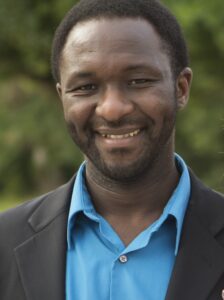
Ibrahim Garba: Assistant Research Professor in the Mel and Enid Zuckerman College of Public Health, University of Arizona, and Senior Researcher at the university’s Native Nations Institute (NNI)
Wednesday, February 21, 2023,
2:30pm-3:30pm,
ASA Koffler Great Room and Zoom
Respecting the concerns of Indigenous communities is a major responsibility of more industrialized societies. Too often, however, such communities absorb an unjustly high percentage of the negative impacts of extractive and industrial development projects (e.g., mining, logging, dams, oil).
Ibrahim Garba will explain the consequences that affect Indigenous lifeways, lands, and rights. The national governments that sponsor or allow such projects have usually justified these activities and impacts in the name of national interests (e.g., security) or benefits (e.g., economic). Many Indigenous Peoples disagree with this line of reasoning because they consider themselves distinct political collectives who may have priorities and values that differ from those of the nation-states that have been built around them. Using examples from the US and beyond, this talk will discuss how the principle of self-determination in international law (the right of peoples to “freely determine their political status and freely pursue their economic, social and cultural development”) can provide a framework for structuring respectful relations between Indigenous nations and nation-state governments when large projects with significant impacts are being planned and carried out.
Ibrahim Garba, SJD, JD, MA, has graduate training in philosophy and international human rights law and has also completed fellowships in bioethics, health policy, and regulatory science. His research interests in ethics have included the implications of precision (personalized) medicine for public health, the ethical conduct of health research in low-resource settings, and the use of Indigenous samples in biomedical research. His legal scholarship explores the evolution of collective rights in international law and how these rights provide a governance framework for collectives (especially Indigenous Peoples) to participate in the development of policies that affect them.
Professor Garba has taught college philosophy in the United States and high school literature in his home country of Nigeria.
Compiled by Marilyn Skinner, Academy Village Volunteer
You can connect to Zoom either by using the following URL: https://zoom.us/j/95456511620?pwd=OC9GcnJRNmJpMTdXdXFhaUpCUkx4QT09 or by opening a browser to zoom.com/join and typing in Meeting ID: 954 5651 1620 and Passcode: 85747
